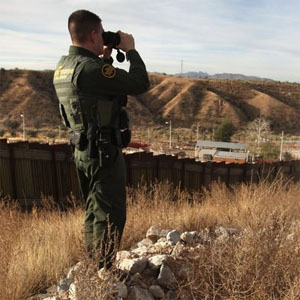I spent the five happiest years of my life in a morgue. As a forensic scientist in the Cleveland coroner’s office I analyzed gunshot residue on hands and clothing, hairs, fibers, paint, glass, DNA, blood and many other forms of trace evidence, as well as crime scenes. Now I'm a certified latent print examiner and CSI for a police department in Florida. I also write a series of forensic suspense novels, turning the day job into fiction. My books have been translated into six languages.
Usually job vacancies aren't that plentiful that you can be too choosy. Are all or most of the duties similar to what you want to do? Is the location acceptable to you (local, or someplace you wouldn't mind relocating to)? Is there a good chance you will meet their expectations sufficiently that they will offer you a job? If the answer to all three is yes, then I would suggest you take it. If the answer to only the first two is yes, try anyway.
Best of luck to you!
That's an excellent question that unfortunately I can't answer. One probably would use it, but back when I did hairs and fibers it was generally thought that the only way was to extract the dye and do thin-layer chromatography, which we didn't have. We also didn't have a Ramen, so all I could do was microscopic comparison.
Best of luck!
I wouldn't be involved with cases like this so I don't know. In my experience with homeless camps the people are usually not too cooperative and don't want to leave, so I haven't seen this happen.
That’s a good question that I’m afraid I can’t answer. I’m sure there is some way to determine the chemicals used in pepper spray. But this would be affected by a) how long does it remain on the skin before the skin absorbs it and b) most forensic chemistry labs are set up to detect illegal drugs in urine, blood or gastric contents. Identifying any kind of poison or other substance may require equipment or reference databases they don’t have.
Proving it’s the same batch of pepper spray may or may not be possible. I”m not personally involved in this kind of testing, but I can assure you it is not like television. We had a series of cases and wanted to determine the exact composition of drugs with percentages of fentanyl, heroin etc. Turned out while nearly every crime lab can determine if a drug is present, there were only one or two labs in the entire country we could find that could determine percentages, and they charged an arm and a leg.
Sorry I can’t be more help.
Antiques Dealer
 How easy is it to forge a rare piece, and are fakes a big problem in the antiquing world?
How easy is it to forge a rare piece, and are fakes a big problem in the antiquing world?
Ice Sculptor
 What was the raciest sculpture you ever made?
What was the raciest sculpture you ever made?
Border Patrol Agent
 What's the most creative way you saw cartels getting drugs across the border?
What's the most creative way you saw cartels getting drugs across the border?
I don’t know what you mean by pure math. Most crime scene work, fingerprints, tool marks, serology, might need regular adding and subtracting, but I don’t know of any field that uses calculus or algebra. DNA analysis uses a lot of statistics and ballistics and traffic accident investigation might use physics and geometry. But those are the only examples I can think of.
Best of luck!
I haven’t ever done an autopsy at all, since I’m not a pathologist. They can be done on animals, usually it’s called a necropsy and may be done by a veterinarian.
Because that's not our job. That's the detective's job. They're in charge of and responsible for the investigation.
-OR-
 Login with Facebook
Login with Facebook (max 20 characters - letters, numbers, and underscores only. Note that your username is private, and you have the option to choose an alias when asking questions or hosting a Q&A.)
(A valid e-mail address is required. Your e-mail will not be shared with anyone.)
(min 5 characters)
By checking this box, you acknowledge that you have read and agree to Jobstr.com’s Terms and Privacy Policy.
-OR-
 Register with Facebook
Register with Facebook(Don't worry: you'll be able to choose an alias when asking questions or hosting a Q&A.)